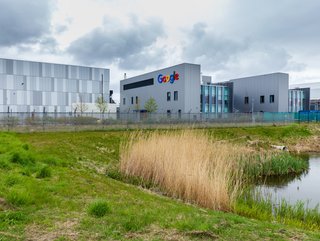Google Axion Processors: A New Era of Data Centre Efficiency

This week (April 2024) saw Google unveil its new Arm-based CPUs, Google Axion Processors.
These new data centre artificial intelligence (AI) chips will be generally available via Google Cloud in the near future. Axion Processors, which are the company’s first Arm-based CPUs, are designed for the data centre and will offer industry-leading performance and energy efficiency.
Google’s tensor processing units (TPUs) are significant, as they are one of few viable alternatives to the advanced chips made by leading chipmaker Nvidia.
The tech giant has committed itself to advancing data centre operations in recent months, having bought land in multiple locations worldwide. It continues to be a dominant player in the developing data centre market as it seeks to interconnect its sites and support rising customer demand for AI.
Helping customers to maximise AI workloads
Google’s recent investments in compute accelerators have transformed the capabilities of its customers. However, analytics, information retrieval and machine learning training all require large amounts of compute power.
In response, Axion processors combine Google’s expertise in silicon with Arm’s highest performing CPU cores to deliver instances with up to 30% better performance than the fastest general-purpose Arm instances currently available in the cloud.
- 50% better performance
- 60% better energy efficiency than comparable instances
- Superior performance to current-generation x86 chips (Intel)
Google states that it plans to use Axion to power services such as its YouTube Ads and Google Earth Engine in Google Cloud.
“We're making it easy for customers to bring their existing workloads to Arm,” says Mark Lohmeyer, Google Cloud's Vice President and General Manager of Compute and Machine Learning Infrastructure. “Axion is built on open foundations but customers using Arm anywhere can easily adopt Axion without re-architecting or re-writing their apps.”
Harnessing sustainable data centre solutions to optimise efficiency
According to Google, the new TPU v5p chip is built to run in pods of 8,960 chips and can achieve twice the raw performance as the generation of TPUs before it. In order to ensure that the pod runs at optimal performance, Google utilises liquid cooling - a more sustainable data centre solution that uses less energy than air cooling.
Google owns and operates data centres all over the world designed to keep the Internet ticking over 24/7. Some of these are dedicated to improving efficiency in order to enhance innovation, but also to achieve greater sustainability.
In fact, the company intends to run on total carbon-free energy on every grid it operates on by 2030. Its data centres are already 1.5x more efficient than the industry average and continue to deliver 3x more computing power with the same amount of electrical power compared to five years ago.
With Axion processors, Google hopes that customers can better optimise their operations and better report on their carbon emissions.
“At Google, we constantly push the boundaries of computing, exploring what is possible for grand challenges ranging from information retrieval, global video distribution, and of course generative AI,” says Amin Vahdat, Vice President and General Manager - Machine Learning, Systems, and Cloud AI, at Google.
******
Make sure you check out the latest edition of Data Centre Magazine and also sign up to our global conference series - Tech & AI LIVE 2024
******
Data Centre Magazine is a BizClik brand






